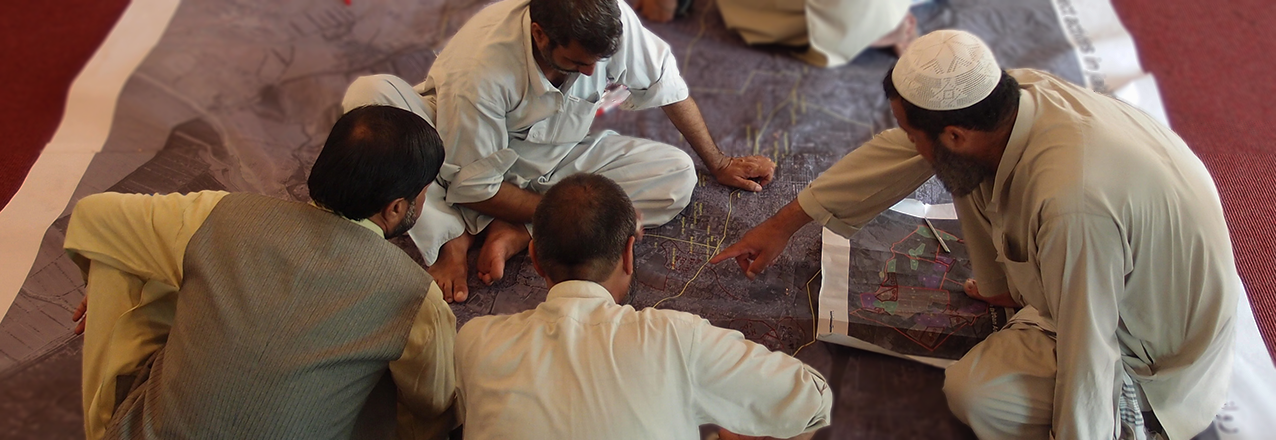These tools and Mission resources are intended to help USAID staff as well as other U.S. Government personnel and development practitioners to 1) identify USAID funding mechanisms, services, and tools, and 2) provide information that will help development practitioners, policy makers, and programs to assess, implement, and evaluate efforts to strengthen land and resource rights for all members of society.
Photo Credit: Gary Hunter and Anna Soave / Tetra Tech
Mapping Approaches for Securing Tenure (MAST) Learning Platform
MAST blends participatory mapping approaches with flexible technology tools to help local communities who lack access to government services to document, manage and secure their land and resource rights, improving long-term governance of community land and resources. Learn more »
Funding/Contract Mechanisms
The Strengthening Tenure and Resource Rights (STARR) IDIQ is a broad support mechanism designed to provide short- and long-term technical assistance available for field Missions and other Offices and Bureaus through August 1, 2020. Learn about STARR, STARR II and other mechanisms »
Technical Assistance
The E3/Land team at USAID provides technical support and thought leadership to USAID Missions and other U.S. Government departments and agencies. Learn more about the services provided »
Geospatial Analytics
E3/Land works with USAID Missions and offices, host country governments, communities and other partners to use geospatial analytics and data throughout the life cycle of land and resource governance projects and evaluations to improve decision making. Learn how »
Land Advisors Program
The USAID Land Advisors Program expands USAID’s cadre of land and resource governance ambassadors from Missions and across sectors by building the capacity of selected USAID staff in land and resource governance (LRG) programming. Learn more here.
Tools and Guides
A suite of tools and guides provides background, guidance, and constraints to consider on a variety of land tenure and property rights related issues. Learn more »


